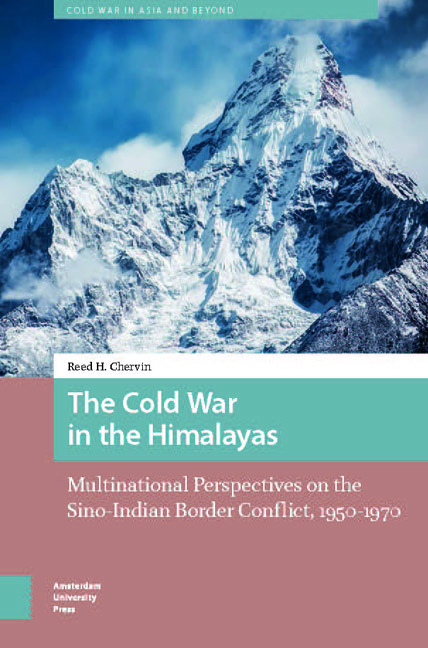 The Cold War in the Himalayas
The Cold War in the Himalayas 4 - Indian Views and Policies Toward the Northern Frontier, 1950–1962
Published online by Cambridge University Press: 16 April 2024
Summary
Abstract
Chapter 4 explores India's use of military preparation, development of frontier regions, and diplomacy to deal with China's new presence at the border. Section one traces the initial failure of India to secure its border with China. This failure partially reversed in 1959, however. Section two contends that New Delhi increased security along India's peripheries by using aid to win over people living in the frontier and conducting state visits to neighboring countries such as Nepal. In section three, I examine India's management of Kalimpong, which it deemed a hotbed for Chinese spy activity. The final section assesses the Dalai Lama's role in resolving India's border issues with China.
Keywords: Kalimpong, Burma, Tibet, treaty, Tibetan Rebellion, Dalai Lama
Like the People's Republic, India regarded control over its frontier as a fundamental part of nationhood. India fortified its border with Pakistan not long after the 1947 partition. China's advance on and infiltration of India's peripheries began to dominate Indian thinking prior to the 1962 war, however. Indian leaders posited that Beijing was chipping away at important buffer zones while diminishing India's sphere of influence. Domination of Tibet by the People's Republic as well as Beijing's overtures to the Himalayan kingdoms and Southeast Asia shaped this perspective.
Indian officials had much to consider about how to respond to China. Some adopted a realist approach early on, arguing that India needed to recognize the Chinese threat and secure the border region. Some attached great significance to Hindi-Chini bhai bhai and eschewed confrontation, while others held moderate or ambivalent views. In the end, the Indian government used military contingency plans, economic development, careful management of the frontier town of Kalimpong and Tibetan border crossers (e.g., the Dalai Lama), and high-level diplomacy to deal with an increased Chinese presence at the frontier. These measures succeeded to varying degrees.
Border Security through Military Means
Concerned Indians interpreted the October 1950 Chinese invasion of Tibet as an event that foreshadowed future border problems. Poet, nationalist, and mystic Shri Aurobindo stated in November 1950 (three weeks before he died) that the People's Liberation Army had entered Tibet to extend China's frontiers and threaten India in the future.
- Type
- Chapter
- Information
- The Cold War in the HimalayasMultinational Perspectives on the Sino-Indian Border Conflict, 1950-1970, pp. 153 - 180Publisher: Amsterdam University PressPrint publication year: 2024
